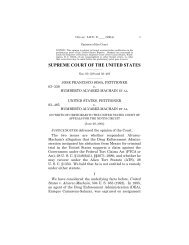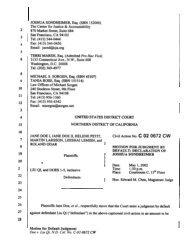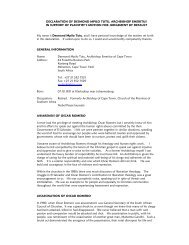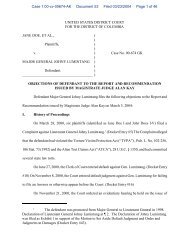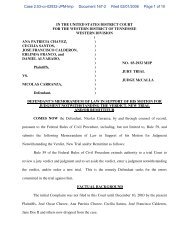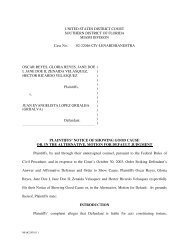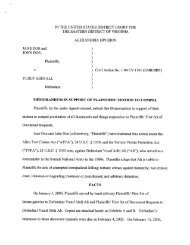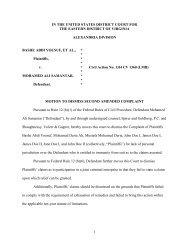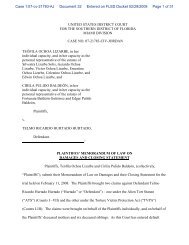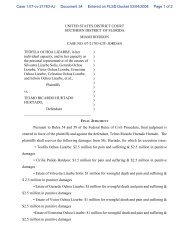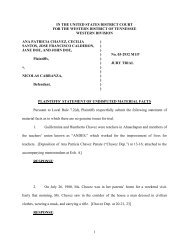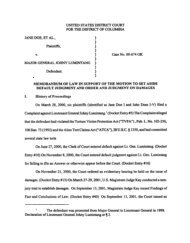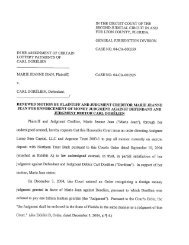Petitioner, v. Respondents. - Center for Justice and Accountability
Petitioner, v. Respondents. - Center for Justice and Accountability
Petitioner, v. Respondents. - Center for Justice and Accountability
You also want an ePaper? Increase the reach of your titles
YUMPU automatically turns print PDFs into web optimized ePapers that Google loves.
39In any event, the DTA fails even rational-basis scrutiny.It withdraws habeas only from non-citizens detained by themilitary in Guantanamo, while preserving the writ <strong>for</strong>individuals identically situated in everything but citizenship,custodian, or location of detention. There is no rational basis<strong>for</strong> withdrawing habeas rights only from those held by theDefense Department. Likewise there is no rational justification<strong>for</strong> withdrawing habeas access from only those alienshoused in Guantanamo Bay, but not those held elsewhere.“[T]his Court has consistently recognized that wherethere is in fact discrimination against individual interests,the constitutional guarantee of equal protection of the lawsis not inapplicable simply because the discrimination isbased upon some group characteristic such as geographiclocation.” San Antonio Indep. Sch. Dist. v. Rodriguez, 411 U.S. 1,92 (1973) (Marshall, J., dissenting). The government hasoffered no justification <strong>for</strong> the distinctions drawn by theDTA <strong>and</strong> none is apparent. The discrimination here is surelymore corrosive than, <strong>for</strong> example, conditioning access tohabeas on a filing fee. Smith v. Bennett, 365 U.S. 708 (1961). Itoffends the very essence of equal justice under law. It istargeted at a population who cannot vote, <strong>and</strong> concerns notgovernment benefits, but the touchstone issue of who cancome into court to protect his liberty. 39of the very essence of constitutional liberty”) (citation omitted).39 The government’s reading of the DTA raises several otherconstitutional problems as well. The Article III Exceptions Clauseviolation is discussed supra pp. 24-26. It would also run afoul of the Bill ofAttainder Clause. U.S. CONST., art. I, sec. 9, cl. 9. A law is an unlawfulattainder if (1) it applies to easily ascertainable members of a group, <strong>and</strong>(2) inflicts punishment. United States v. Lovett, 328 U.S. 303, 315 (1946). TheAct, as read by respondents, satisfies both prongs. The DTA’s plainlanguage applies only to “alien[s] detained by the Department of Defenseat Guantanamo.” § 1005(e)(1). And the Act constitutes punishment underrespondents’ interpretation. The extended detention, <strong>and</strong> in Hamdan’scase the denial of his right to challenge the jurisdiction <strong>and</strong> legality of thecommission itself, is at least as punitive as the denial of the right toengage in a particular profession. See Ex parte Garl<strong>and</strong>, 4 Wall. 333 (1867)(denial of right to practice law is an attainder); cf. 151 Cong. Rec. S12664(“If you want to give terrorists habeas corpus rights as if they wereAmerican citizens, that they are not part of an outfit trying to wage waron us, fine, vote against me.”) (Nov. 10, 2005) (remarks of Sen. Graham).




